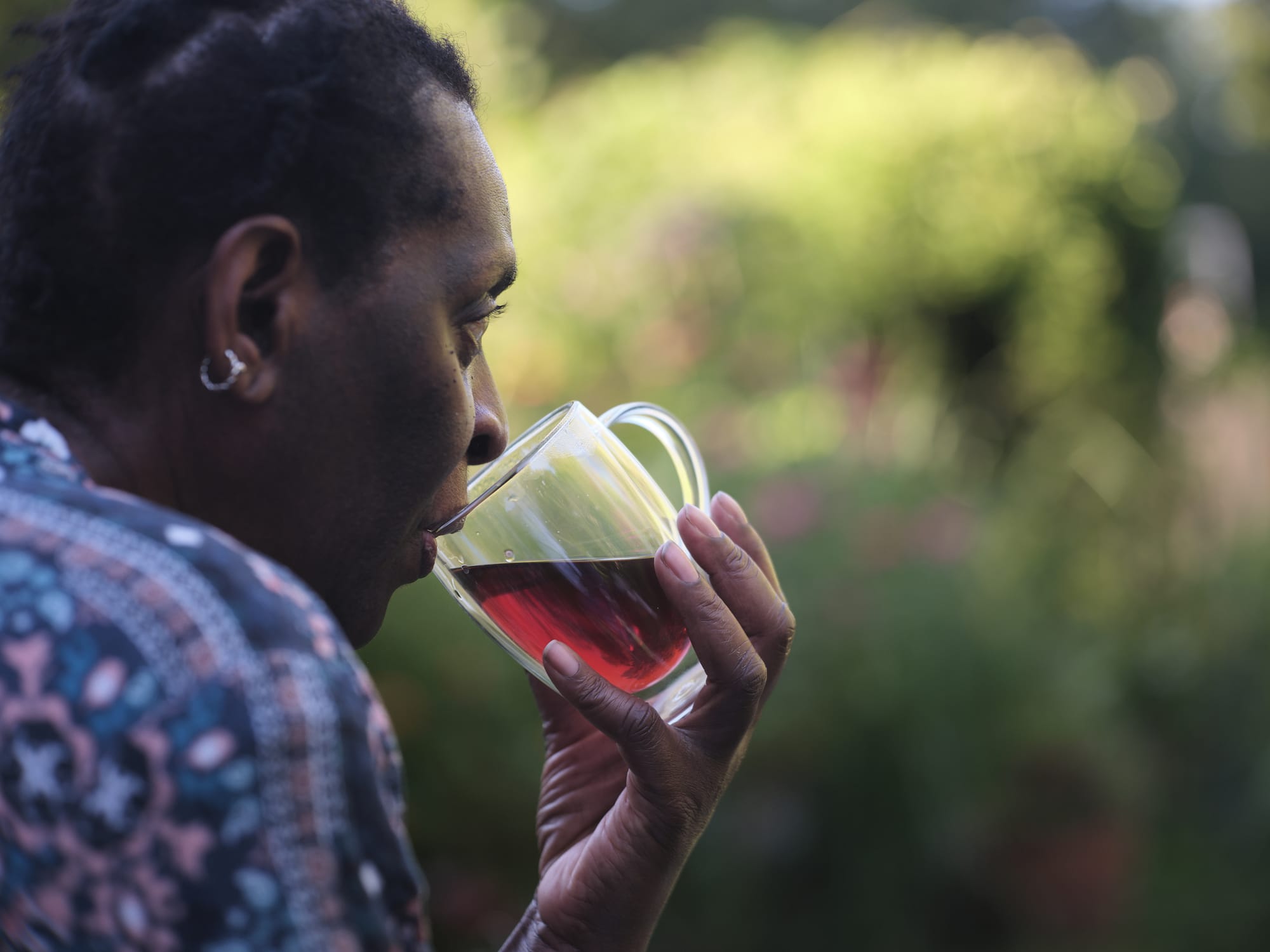Labor Day
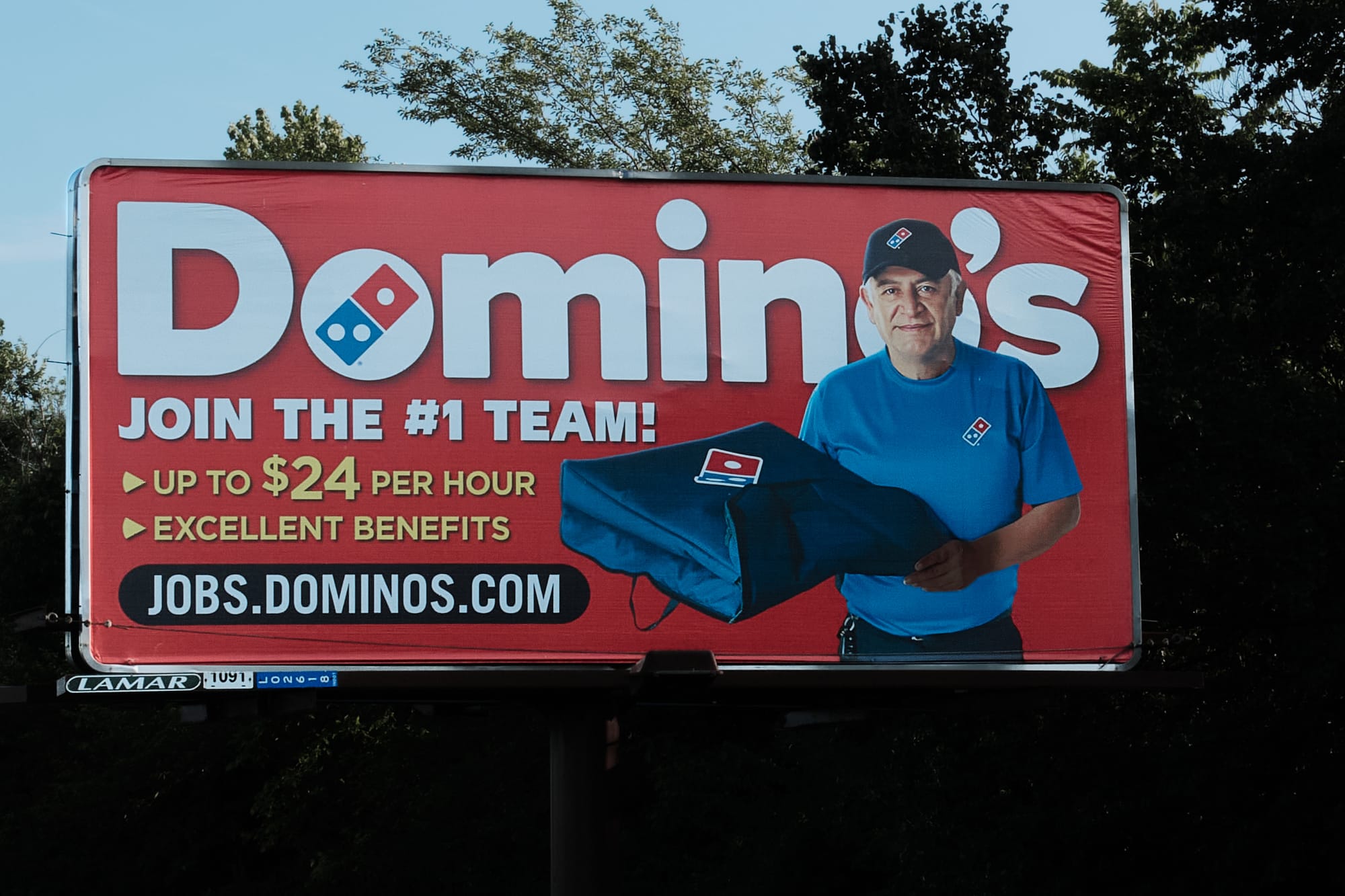
Contemplate that sign. They're recruiting old men to be Pizza delivery drivers. Charles Bowden wrote about the Mexican border as a laboratory of our future back in the nineties when I was living in Tucson. I did some writing on border issues back then. One piece was about water issues in northern Mexico. NAFTA-born factories upstream were polluting a beautiful valley between Magdalena and Santa Ana in the state of Sonora. I visited an idyllic little hacienda in a beautiful valley which was pieced together by a patchwork of rectangular small farms and a small river with stands of old cottonwoods winding through the fields. I met the silver haired patron, a reserved old man who radiated pride and dignity. The land had been in his family since not long after the conquest. He told stories of Apache raids during the time of his grandparents and pre-Columbian petroglyphs on rock formations up in the hills. I learned that the water his property depended on had become so polluted that it had destroyed his livelihood from the farm. He now had to make ends meet selling hot dogs in the big plaza in Magdalena. He showed me his hot dog cart.
Bowden nailed it thirty years ago. The border was the laboratory of our future and that man was one of its early frankensteins. Now in the experiment is being rolled out in the U.S.. The land is increasingly poisoned and old men have to deliver pizzas, or do other meaningless work to make ends meet.
And what's worse, the laboratory of our future is working overtime. The border's been militarized for some time now and home to de facto concentration camps. You need only look at what's going on in Los Angeles and Washington, D.C. to see what's coming down the pike for us.

I'm not a gear guy with cameras and rarely buy anything new, much less anything different, but occasionally I do and I recently bought a telephoto/macro lens, a kind of lens I've used from time to time over the years, but never much liked. I enjoy shooting with long lenses, especially macros, I just don't like the photos once I develop them. Extreme closeups reveal beautiful patterns and strange sights one finds in the smaller worlds of nature, but plenty of other people have that covered and at the high end all the photos all look pretty much the same. I don't think there's anything much I could add to it. Yet I persist. Everything doesn't have to be high art, or so I hear.
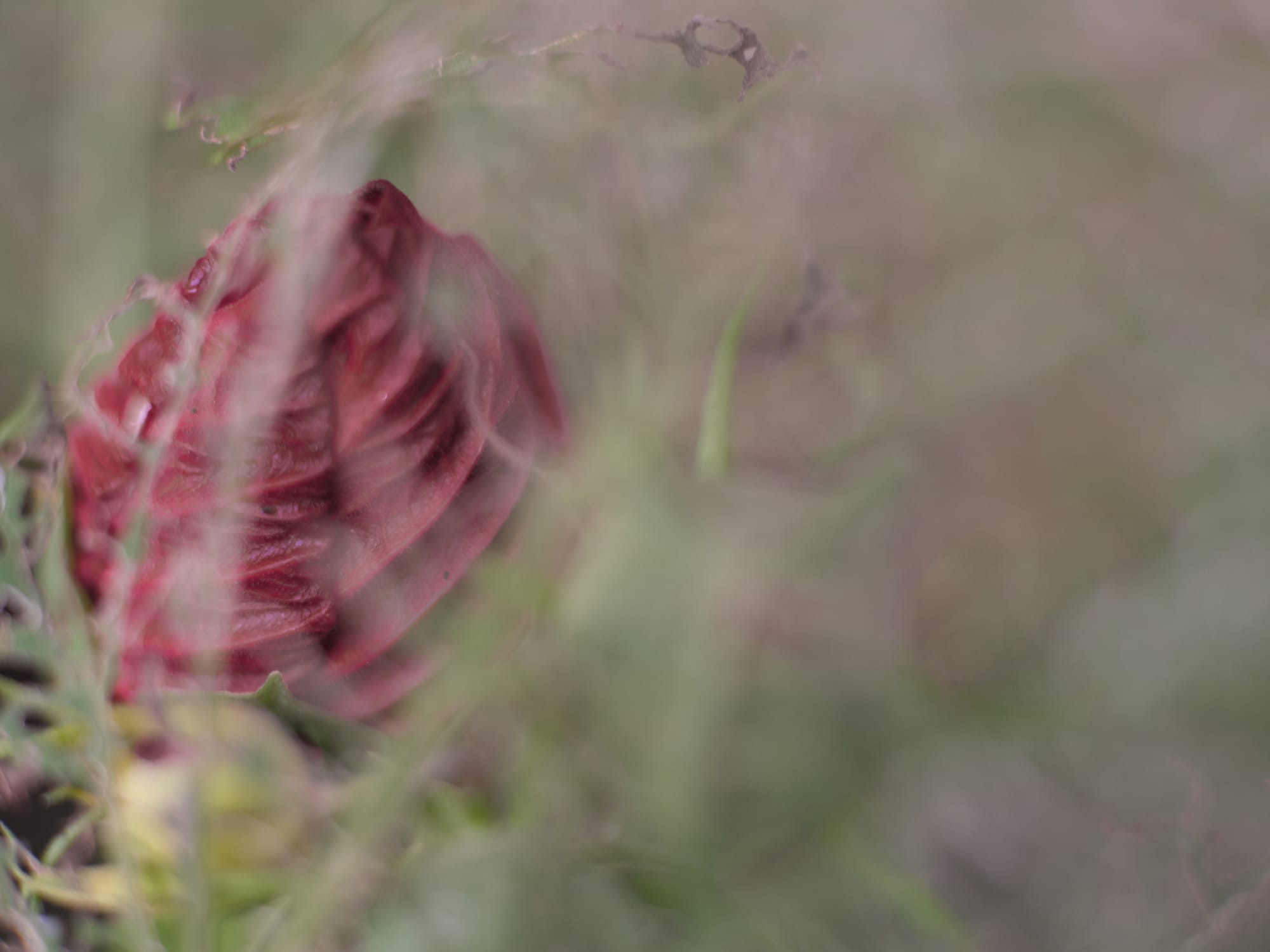
I saw the Spike Lee movie "Highest to Lowest" and really hated it. At least I hated it while I was watching it and even more so when I walked out of the theater. But then I started thinking about it from the perspective of trying to figure out what Lee is trying to say, because you know he's trying to say something – many things, actually. It's Lee, so some of what he's trying to communicate is blazingly obvious. The Red Sox suck. We get it. But other things he wants to say lurk deep down in the lower reaches of both the characters' and the filmmaker's motivations and those sub-currents are a big part of what makes Lee great. So I'll see it again and hope I don't hate it like I did the first time.
Why did I hate it? The score was really annoying. It just didn't work and didn't work in such an obvious, horrible way. The cops are unrealistically stupid. Washington's performance is a caricature of himself at this point in his career. The character he plays in this film is an asshole, which is fine, if that's the intention, but it feels more like he was meant to be the good and wise hero of the story meting out mercy or harsh justice to the lesser people as the need arises. The highest are the highest for good reason in the world of the movie. They are better people. The lowest are sick and corrupt and deserve all the shit they have to eat. Is that what Lee really wanted to say? Or is he doing some kind of filmic jujitsu with appearances? All of the top reviewers took it at face value. They say he's turned into Bill Cosby, though only in the grumpy-old-man-yelling-at-the-kids-to-get-off-of-his-lawn version of Cosby.
But Lee's a.genuine auteur and you have to consider that his message may not be straightforward. And you have to consider this later work in the context of his entire filmography. Lee knows what he's doing and doesn't give much of a fuck what I think about it. I'm sure he knows the cops were unrealistically stupid and has reasons for that. Every Spike Lee film has at least one great sequence, this one included, so they are worth watching, and re-watching both for the transcendentally great sequences and as chapters in a much larger story. I'm sure I'll like it better on re-watch. I just wish they'd put out a version with an alternate soundtrack.
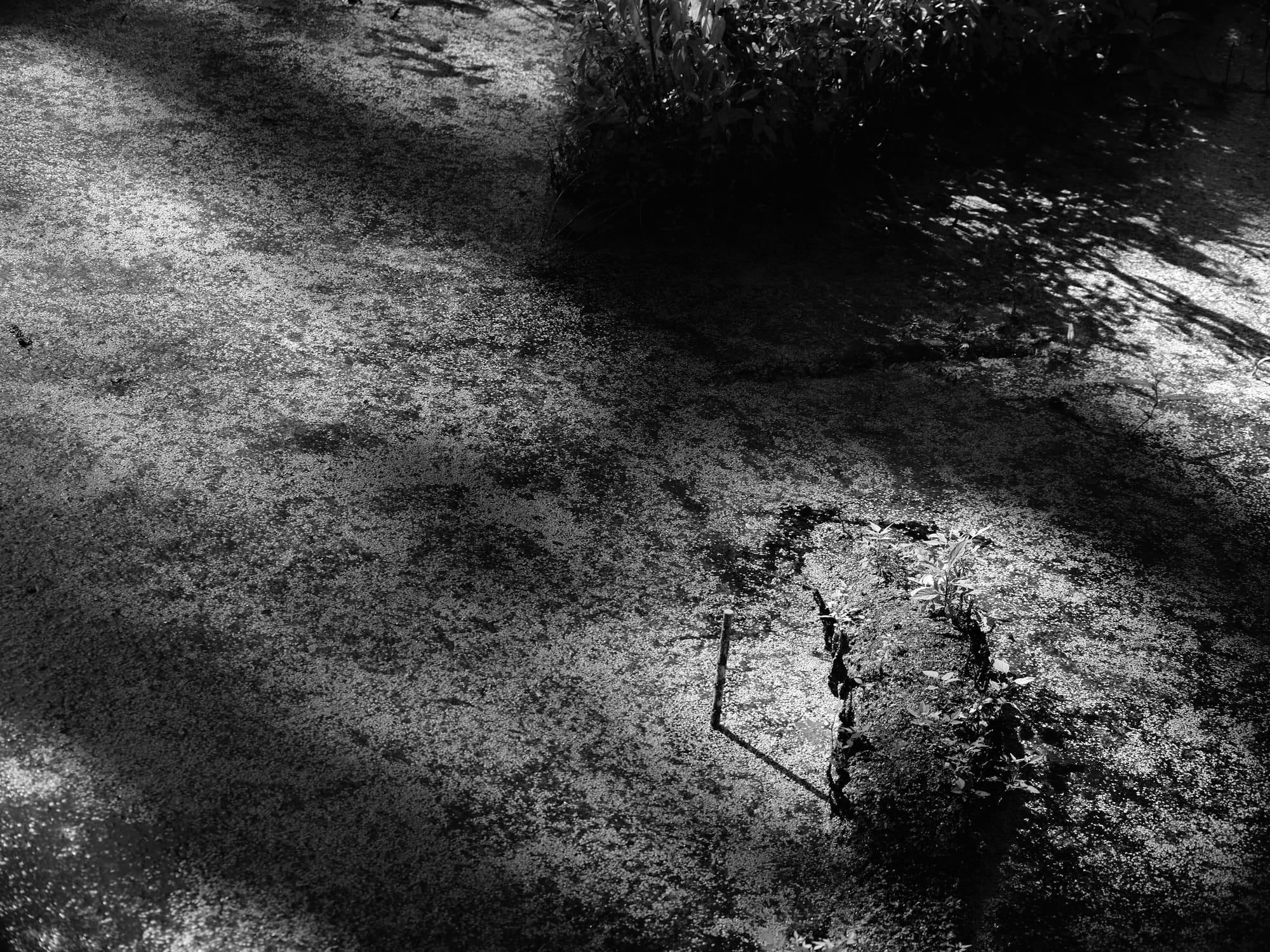
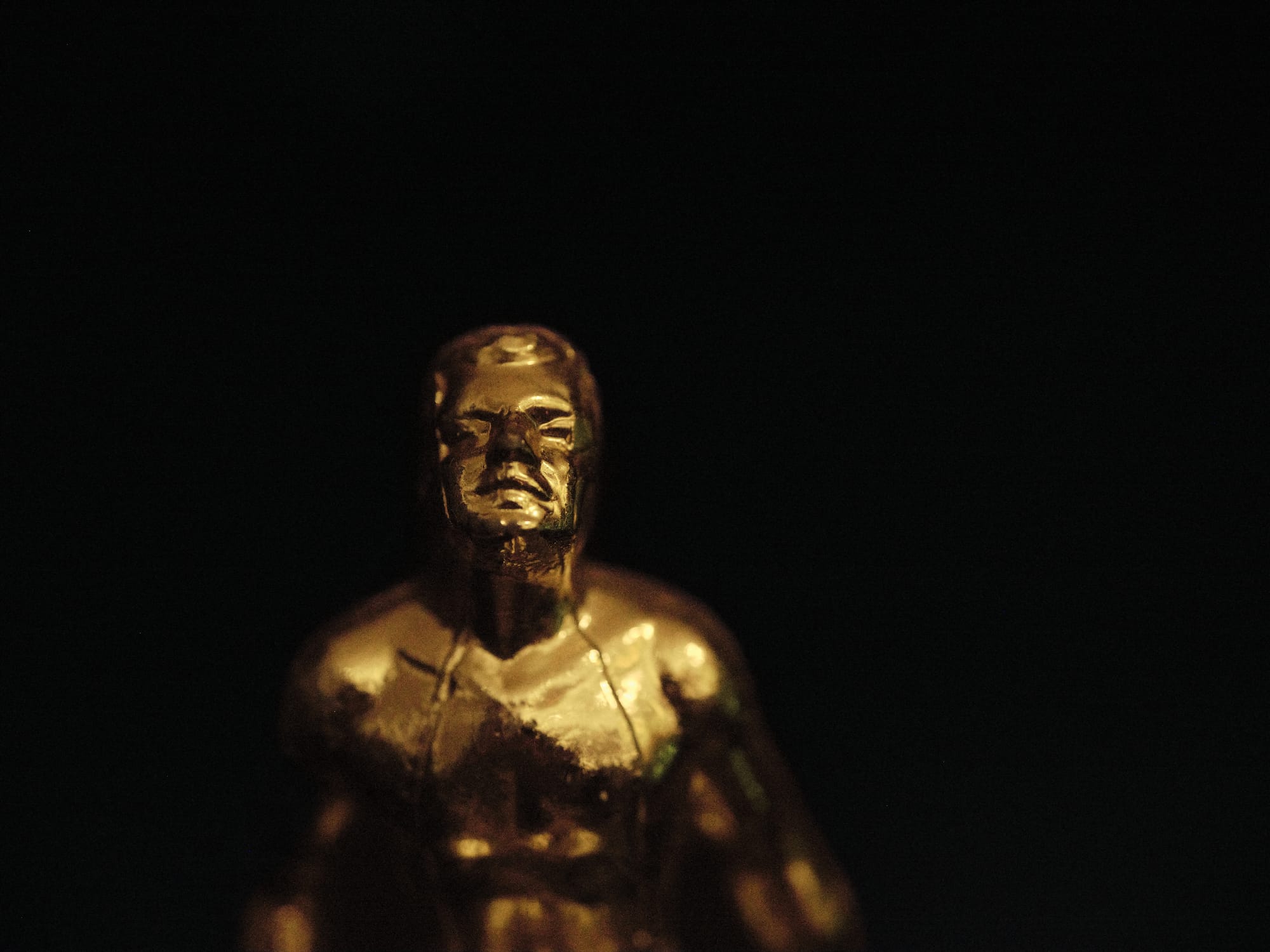
That's a swim trophy. I used to have a boxful but I threw most of them away, along with all my ribbons. It's funny how we can have so many labels. One can be a writer, a photographer, a husband, father, uncle or aunt. An auto mechanic, a power boater, a dirt bike rider, a cook, an adventurer, or whatever. All of those potential labels add up to become our identities. Part of my identity is that I am a swimmer, and by extension an athlete. Once I had the thought to write a whimsical autobiography titled "7 Pools", or "9 Pools"; however many pools it turned out I swam in at cities where I lived. The problem with that conceit is that nothing much of interest ever happens at a pool, so it's a very loose peg at best. Pools have different feels and levels of upkeep and a swimmer will like some more than others for reasons both objective and subjective, but to an outsider, they are pretty much all the same, just rectangles filled with water and people mindlessly swimming back and forth going nowhere. The swimmers are about the same everywhere as well. Except Paris, which was interesting because a lot of the women were topless. It wasn't just pretty young women but women of all ages, including older ones in their sixties or seventies. At first you notice something like that because it's different, but it becomes normal in no time and you stop seeing it. Swimming outdoors in Tucson was a treat. Swimming outdoors in the shadow of the oil refinery in Mount Vernon was disturbing. The glass enclosed pool in New Harmony was a special little utopia when it snowed. But for the most part, what's above the water is not important. It's the feel of the water sliding by, and the sight of the reflections dancing in the blue. And the meditative state one enjoys when doing it right.
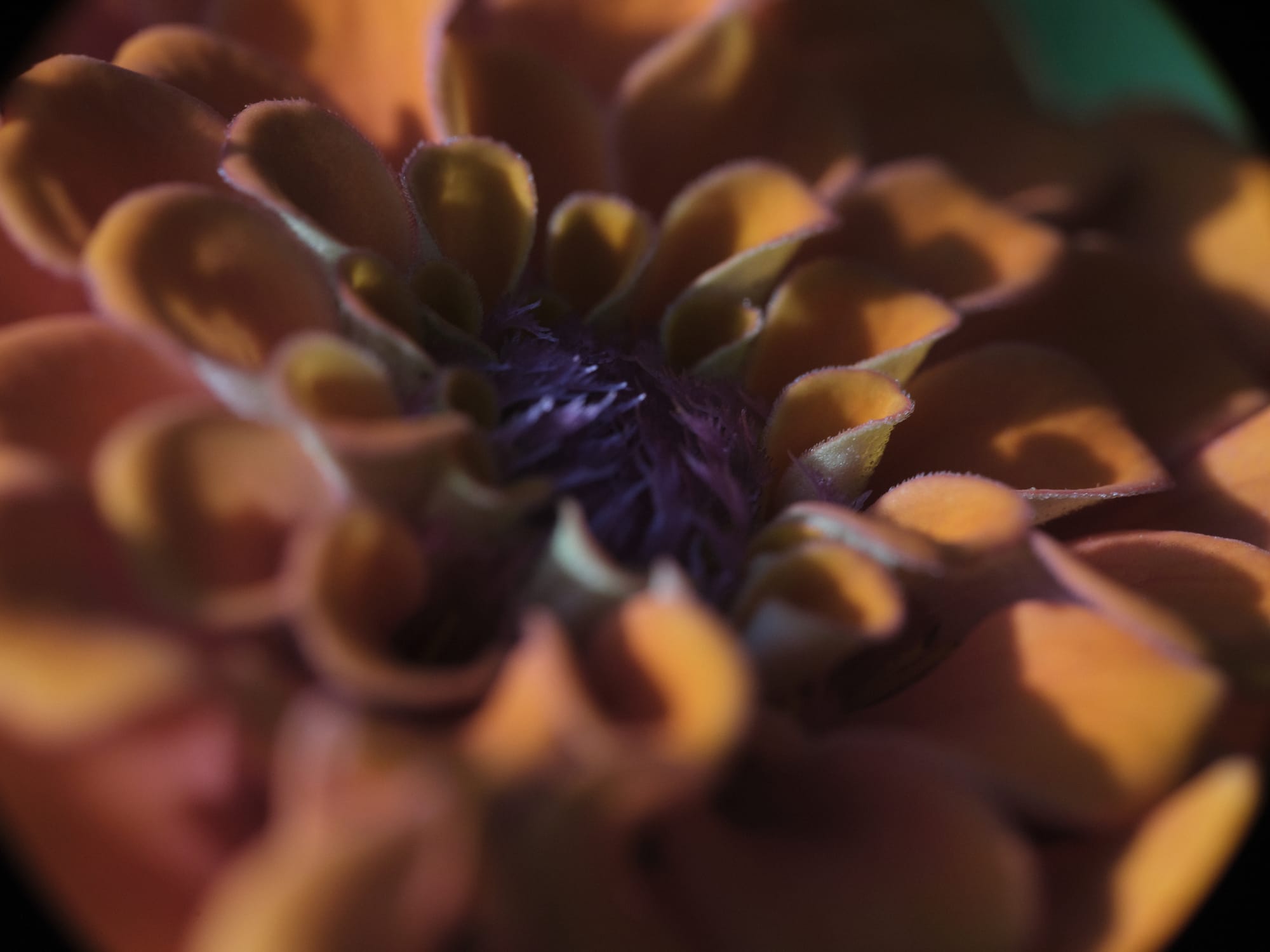
Sitting in my backyard enjoying Lola's gardens puts me in a meditative state as well and that's what spurred me to get the long lens. Over the years I've flirted with a theory of visual storytelling that would include the tiny things we don't normally see. For example, a series on a garden would include a wide shot with the sky and then a series of ever closer shots down to the macros and even a microscopic camera to show even more of what's really in the scene. Same thing in a city. What's going on in the cracks in the sidewalk? The concentration required to photograph the largely invisible creates a different level of consciousness. It requires a meditative state.
The Xenia above is a stereotypical macro shot. Pretty, innit? I enjoy taking and developing that picture, but as art it's worthless. Instagram and Bluesky are full of crap like that. Even if not, high end like Nat Geo or Science have been publishing top form examples forever.
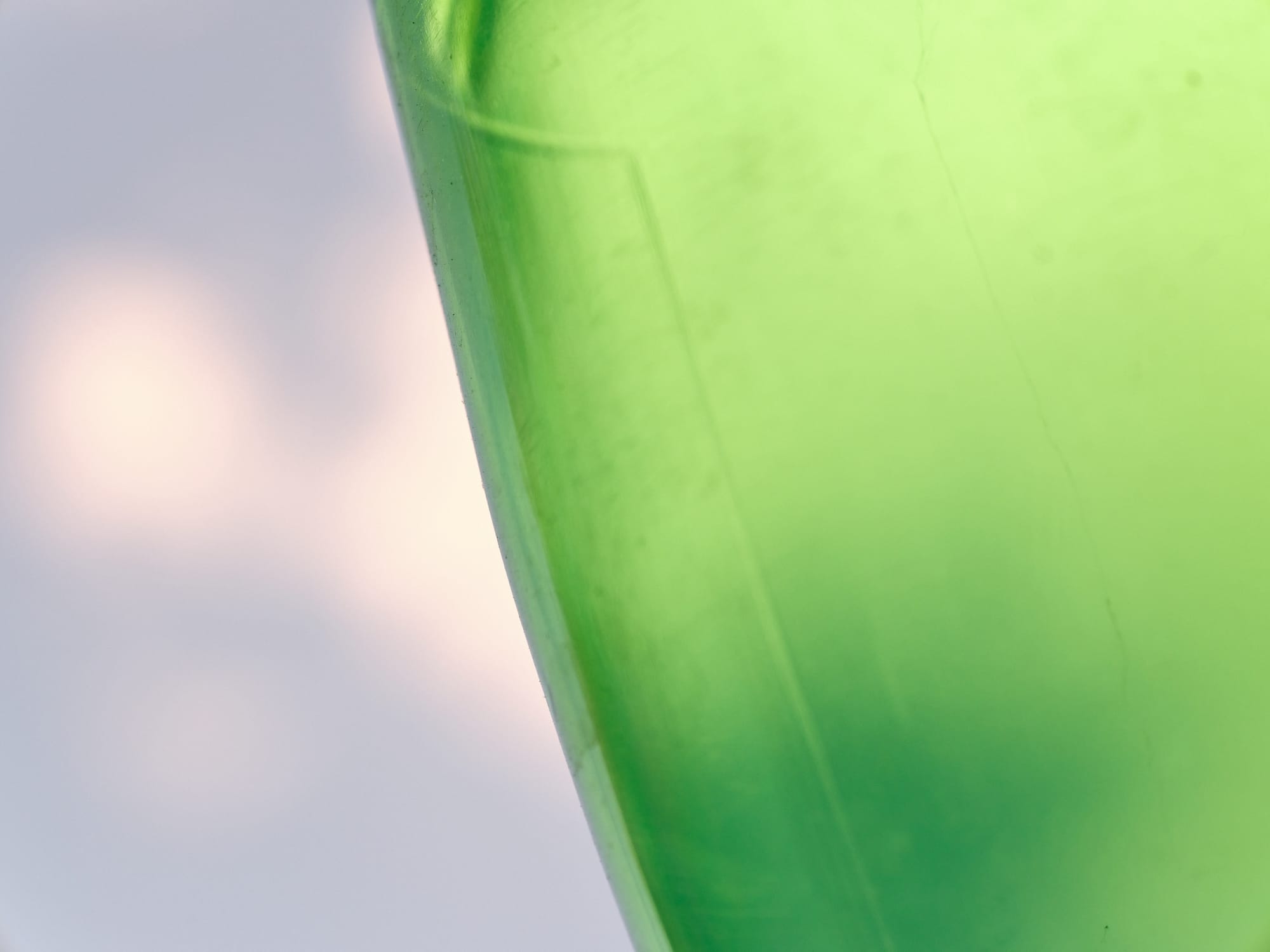
Then there's higher artier stuff like this. Am I Magritte? No. No, I'm not. But maybe I can sell this crap? I'm gonna be needing some money real soon.Selling artsy photos would beat delivering Pizzas or selling hotdogs down by the courthouse.
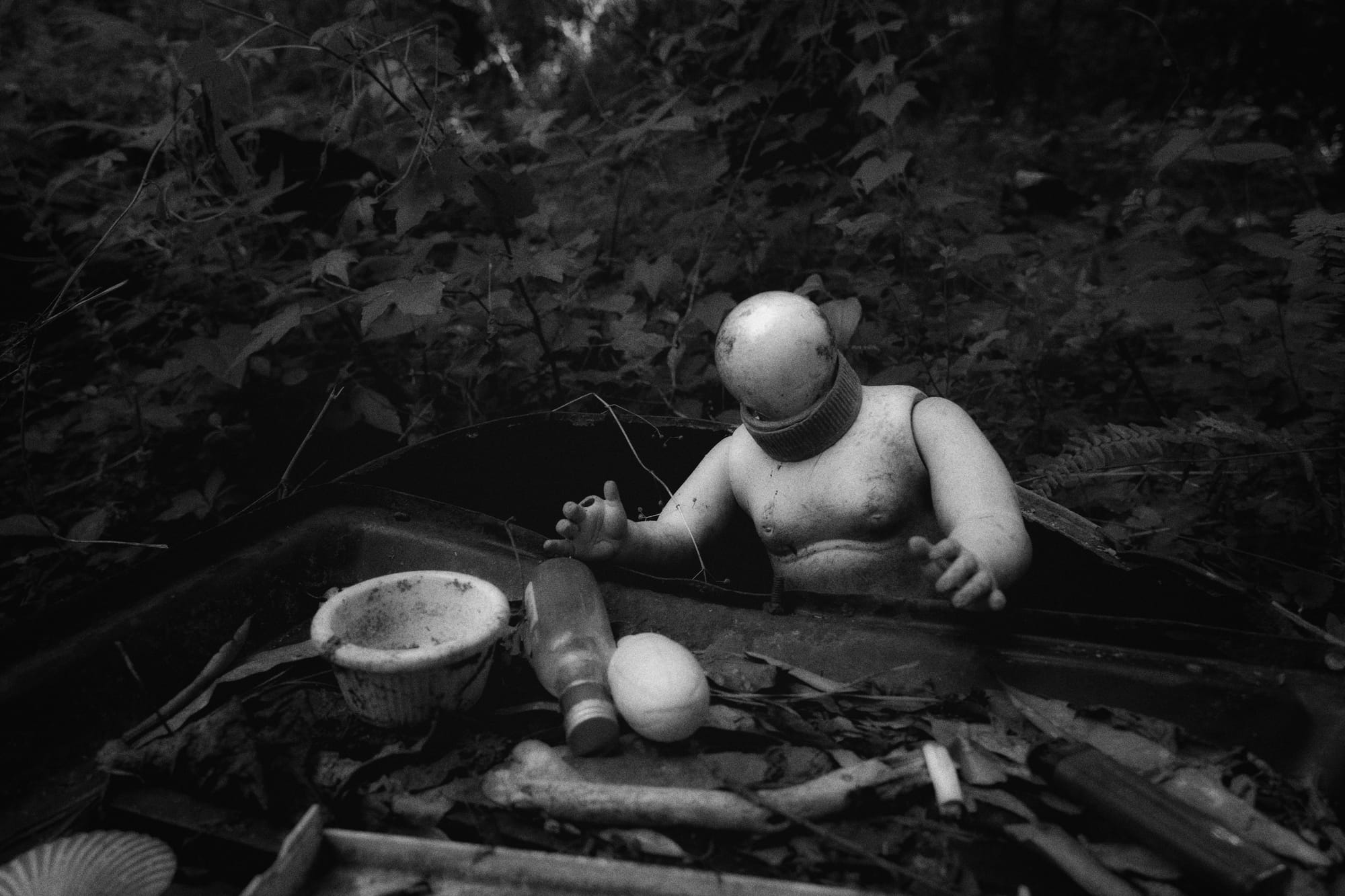
There is a lot working against people being able to achieve meditative states, which requires a person to do nothing. A different type of state, let's call it the neoliberal state, actively works against people having the time or moral conditioning to do nothing, or at least nothing that's not what the state considers productive. The purpose of human beings is to produce wealth, mostly for other people. If we had the time and the framework to contemplate the ways of the neoliberal state, then we'd be much less likely to sacrifice our lives to wealth creation. Were that to happen, political and economic trouble would no doubt ensue. If growth were to sputter and the rich were to find it ever more difficult to get richer, that would make them act out. We are indebted to the wealthy and powerful for everything we have. There are always debts and taxes to be paid and severe consequences if we don't pay them. Things are slipping, but that just means we've got to bear down and work harder to get, or keep, the things we want, and above all, to pay the bills on time. There's really no alternative. Or so we've been led to think.
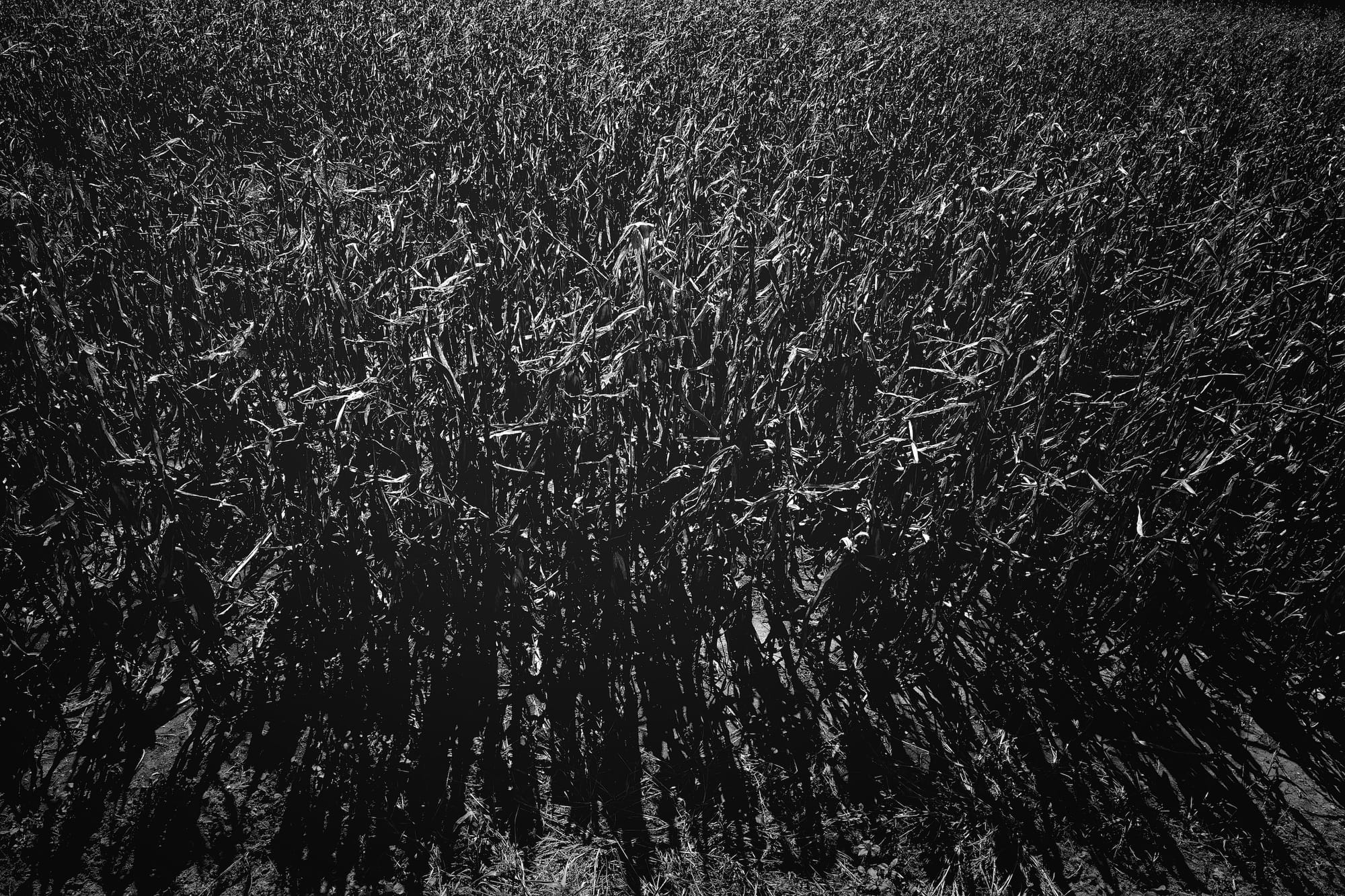
I was lucky enough to be born when, where, and how I was born. Born in what the French call the "Trente Glorieuses," the thirty years between 1945 and 1975, in the United Sates, as a white middle-class male I was afforded a ridiculous amount of privilege compared to most people on the planet, and in history.
My grandparents generation believed that their lives of hard work would buy leisure time for their kids, and it did. My parents wanted me to go to college and get a better life still. And I did, almost, but then after 1975 when neoliberalism became ascendant, the dream started turning dour.
Before neoliberalism, a better life was described as working less. Jetson-like technology would make work obsolete and humans would be able to live to their full potential without being tied to some kind of job they didn't want to do. Rosie the Robot would take care of all the menial work.
Well, that vision went poof in a hurry and kids today are totally unaware that there was that kind of expectation for anything but a life of work. The purpose of the technology that replaces humans ceased to mean that humans would toil less and live the good life more. It came to mean that people would be unemployed and poor if they failed to get the job training they'd need to service the robots.
I like the old thinking better. Everyone should get to skate from the crap life of working to pay our debts to the wealthy and powerful. Our purpose should not be to create wealth. Wealth's purpose should be to liberate us. We have the technology. It's just a matter of money and who gets how much for what.
